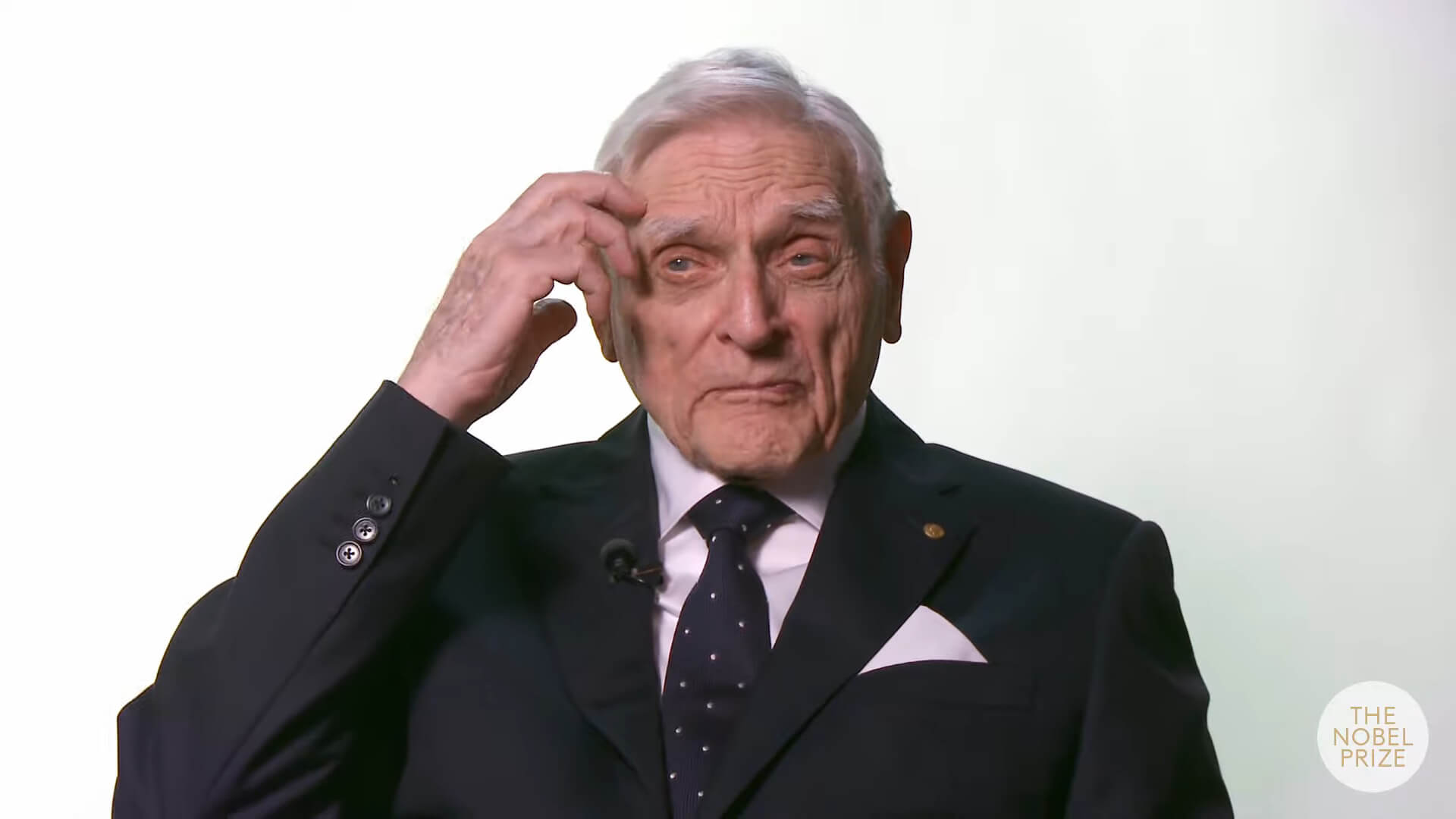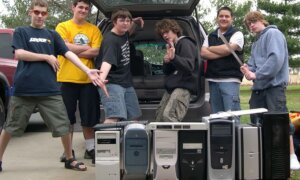“I’m just one more simple human being trying to do his job”, said John B. Goodenough a few years back in a documentary that chronicled his incredible achievements.
Today, we mourn the loss of this incredible pioneer, who was not only credited with the invention of the lithium-ion battery but also a number of breakthroughs that changed the world as we know it. It’s not just the countless smart home devices or portable speakers surrounding you, it’s also what enables you to read this very article right now – the power of RAM.
John B. Goodenough passes on, at the age of 100
On June 26, the news was released that John B. Goodenough had died on Sunday in an assisted living facility, at the age of 100. Goodenough would have celebrated his 101st birthday next month.
It is with a heavy heart that many now are bidding him farewell, because he was a man whose name, despite the obvious pun, was forever associated with innovation and brilliance.
Also read: Arthur C Clarke’s Future Predictions From Decades Ago Are Still Amazingly Accurate
As you’ll see in a few documentaries, including the one linked above, humbleness and warmth were also the attributes that made Goodenough such an incredible person.
John Goodenough was born on July 25, 1922, in Jena, Germany. At the time of his birth, technology was quite different from what we experience today. The 1920s marked a period of significant technological advancements, but it was still a time when many modern conveniences we take for granted were either in their infancy or non-existent.
During the early 1920s, the world was transitioning from the aftermath of World War I, and society was undergoing transformative changes. In terms of technology, several notable developments had taken place, setting the stage for future advancements.
In the realm of communication, telephones were becoming increasingly prevalent, although they were primarily wired and limited to urban areas. Radios were gaining popularity, providing a means for news, entertainment, and music to reach households worldwide. However, television was still a distant dream, as it would be a few more decades before the first commercially viable television sets became available.
Transportation was also undergoing rapid advancements. The automobile industry was thriving, with major manufacturers like Ford and General Motors producing affordable and accessible cars for the masses. However, these vehicles were far less advanced compared to the sophisticated automobiles we have today. Air travel was still in its infancy, with commercial flights being rare and limited to a privileged few.
In the field of computing and electronics, the 1920s saw significant progress. Vacuum tube technology was emerging, paving the way for the development of early electronic devices like radios and amplifiers. However, these devices were large, bulky, and expensive, far from the compact and powerful electronics we enjoy today. The concept of a personal computer was still decades away from realization.
John Goodenough’s pioneering work on lithium-ion batteries, for which he is most renowned, came much later in his life, during the late 1970s and early 1980s. The state of technology during his birth in 1922 laid the foundation for future advancements, and it was through his brilliance and dedication that he contributed significantly to the transformative technological landscape we enjoy today.
John B. Goodenough, a pioneer behind the wireless revolution
Goodenough was also the oldest Nobel Prize winner in history. His achievements in the development of lithium-ion batteries brought him the Nobel Prize in chemistry in 2019.
His Nobel Prize was received jointly with the co-creators of the lithium-ion battery, Stanley Whittingham of the State University of New York at Binghamton and Akira Yoshino of Meijo University.
He authored more than 550 articles, 85 book chapters and reviews, and five books, and was a co-recipient of the 2009 Enrico Fermi Award. The Royal Society of Chemistry offers the The John B Goodenough Prize for outstanding contributions to the chemical sciences in any area of materials chemistry.
“In 1979, Goodenough showed that by using lithium cobalt oxide as the cathode of a lithium-ion rechargeable battery, it would be possible to achieve a high density of stored energy with an anode other than metallic lithium. This discovery led to the development of carbon-rich materials that allow for the use of stable and manageable negative electrodes in lithium-ion batteries,” wrote UT News about Goodenough, who was a professor in the Cockrell School of Engineering at the University of Texas in Austin.
John B. Goodenough and his involvement in the creation of RAM (random access memory)
“Early on in his career, Goodenough worked to lay the groundwork for the use of random access memory (RAM) in computers at MIT’s Lincoln Laboratory. However, as federal funding dried out for the project, Goodenough moved to Oxford to teach a chemistry lab and began his work on batteries,” writes Interesting Engineering.
RAM, which stands for Random Access Memory, is a type of computer memory that plays a critical role in the functioning of computers. It is a temporary storage medium that allows the computer to quickly access and manipulate data that is actively being used by the processor.
RAM serves as a bridge between the computer’s central processing unit (CPU) and its storage devices, such as hard drives or solid-state drives. Unlike storage devices that retain data even when the computer is powered off, RAM is volatile memory, meaning its contents are lost when the computer is turned off or restarted.
When you open a program or run an application on your computer, the relevant data and instructions are loaded from the storage devices into the RAM. The CPU can then access and retrieve this data from RAM much faster than if it had to retrieve it directly from the storage devices.
And you can also thank John B. Goodenough for that. Even though he has passed away, his legacy will forever live on.
Follow TechTheLead on Google News to get the news first.



























